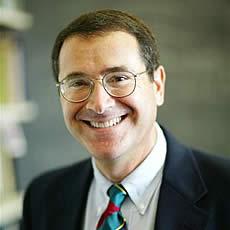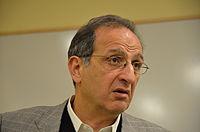College For Convicts: The Need Is Great, the Time Is Now
America faces a humanitarian disaster. It is a disaster that remains invisible to most middle-class Americans, though it is a disaster that blights millions of lives. It is the crisis of the American gulag. America has a higher incarceration rate than any other nation on the planet.
Human Rights Watch has eloquently documented the ongoing crisis of the American penal system. In a 2014 Report entitled Nation Behind Bars, this organization examined both the dimensions of this burgeoning catastrophe, and the reasons for it. “Tough-on-crime” legislation is responsible for much of the problem we face today. Beginning in the 1980’s, state legislators and even the United States Congress sought easy solutions to the question of crime by enacting a whole series of draconian laws. Legislators “criminalized minor conduct, instituted mandatory prison sentences, even for low-level crimes, and established ‘three-strikes-and-you’re-out’ laws for recidivists.” (p. 5).
The crisis, however, does not end when inmates are released. The American penal system creates a whole class of persons who find it difficult if not impossible to reintegrate into society. There are credible reports that there are as many as twenty million individuals in this country with a felony conviction. Deprived of opportunities — for training or for meaningful work — this large pool of persons represents an immense human tragedy. Not only are their talents wasted, not only are they shut out from the chance to contribute to the American economy and society, they are at grave risk of re-offending.
Human Rights Watch offers a number of laudable recommendations for addressing this dire situation — adopt proportional sentencing, treat young people as especially amenable to rehabilitation, rethink the criminalization of non-violent drug offenses.
Still, Human Rights Watch misses an important component to solving the nation’s prison crisis — and that is the promise offered by higher education. Christopher Zoukis, in his important, highly sensible, and pragmatic new book, “College For Convicts” (McFarland, 2016) fills that gap.
Zoukis is a realist. He knows that politically college for convicts is a tough sell to a public that is conditioned to question every government expenditure. And so he opens by his book by building a statistical case for what many might be tempted to dismiss as so much visionary dreaming.
Ex-convicts are likely to re-offend. And recidivism, he notes, has many costs. Former convicts who re-offend do grave injury to the community. They destroy property, and even injure and kill innocent persons. And the costs are compounded by the need to re-incarcerate. But, Zoukis asks, is there a way to break this tragic cycle?
Zoukis answers this question with compelling evidence: “Among inmates who have completed high school courses, recidivism rates drop to 54.6 percent. Those who complete high school or the GED have an even lower rate. Vocational training brings recidivism down to approximately 30 percent. For prisoners who attain an associate’s degree: 13.7 percent recidivism. For prisoners who attain a bachelor’s degree: only 5.6 percent recidivism. And for prisoners who attain a master’s degree: 0 percent recidivism. Zero!” (p. 13).
Let’s be clear: Zoukis is not arguing that every prisoner must obtain a master’s degree. His book is realistic. But that realism is grounded in lived human experience. He asks his readers to imagine what it is like to be the typical released prisoner. Such a person may or may not be welcomed back into society by friends or family. And upon release, the ex-inmate is given almost nothing in the way of resources — perhaps a few hundred dollars, some transportation money, and a hearty “good luck.”
The ex-prisoner, in other words, steps from a highly-regimented, controlled environment into a complex and challenging new world without even the minimal tools to navigate the transition successfully. Lacking skills, such an individual is nearly certain to re-offend.
But, Zoukis insists, not all is hopeless. He points to some programs that have had success in educating prisoners and preparing them for life in the free world. He notes, for instance, that North Carolina works closely with its community college system and a couple of in-state universities to provide needed education. So do other states, such as Michigan, Colorado, and Oregon.
Zoukis’ larger point is that these programs must be expanded for the most practical of reasons. As he writes near the close of his book: “Is education a form of coddling prisoners or does it make sense because it enhances public safety?” (p. 200). The question answers itself.
I agree completely with Zoukis’ pragmatic case for expanded educational opportunities for inmates. But I would also stress the humanitarian side to the question. Human life is precious. We must cherish every human being. We should want people to succeed, to be the best they can be, to achieve greatly in the world. If we can meet inmates’ educational needs, rehabilitate them and stop the cycle of re-offending, if we can put these persons back on the road to being positive contributors to society, then it would be almost criminal not to do so.


This article is brought to you by the author who owns the copyright to the text.
Should you want to support the author’s creative work you can use the PayPal “Donate” button below.
Your donation is a transaction between you and the author. The proceeds go directly to the author’s PayPal account in full less PayPal’s commission.
Facts & Arts neither receives information about you, nor of your donation, nor does Facts & Arts receive a commission.
Facts & Arts does not pay the author, nor takes paid by the author, for the posting of the author's material on Facts & Arts. Facts & Arts finances its operations by selling advertising space.
















